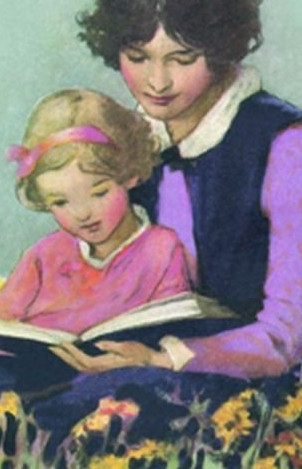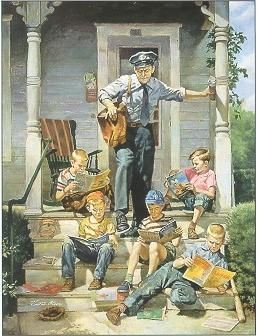Literacy Blogs
- All
- 3-cueing
- academic learning time
- academic vocabulary
- accommodations
- accountability testing
- Active View of Reading
- adolescent literacy
- afterschool programs
- alphabet
- amount of instruction
- amount of reading
- argument
- assessment
- auding
- author awareness
- automaticity
- balanced literacy
- beginning reading
- Book Buddies
- Book Flood
- challenging text
- classroom organization
- close reading
- coaching
- cohesion
- Common Core State Standards
- complex text
- comprehension strategies
- content area reading
- context analysis
- curriculum materials
- Daily 5
- decoding
- departmentalization
- DIBELS
- dictionary skills
- digital texts
- disciplinary literacy
- dyslexia
- early interventions
- effective teachers
- Emily Hanford
- executive function
- family literacy
- fingerpoint reading
- foundational skills
- graphic novels
- guided reading
- heterogeneous grouping of students
- homework
- improving reading achievement
- independent reading
- independent reading level
- informal reading inventories
- informational texts
- instructional level
- invented spelling
- jigsaw instruction
- knowledge
- leadership
- learning disabilities
- Lexiles
- linguistic comprehension
- listening comprehension
- literacy charities
- literacy policy
- literary interpretation
- main idea
- morphology
- motivation
- narrative text
- National Early Literacy Panel
- nonsense words
- oral language
- oral reading fluency
- paraphrasing
- Pause, Prompt, Praise (3P)
- personalized learning
- phonemes
- phonemic awareness
- phonics
- press and media
- principals
- prosody
- Readers' Workshop
- reading comprehension
- reading disabilities
- reading intervention
- reading levels
- reading models
- Reading Recovery
- reading research
- reading skills
- reading strategies
- reading to children
- reading wars
- reading-writing relations
- remedial reading
- rereading
- Response to Intervention
- Scarborough's Rope
- science of reading
- seatwork
- semantics
- sentence comprehension
- sequence of instruction
- set for consistency
- set for variability
- shared reading
- shared reading
- sight vocabulary
- simple view of reading
- Simple View of Reading
- small group instruction
- social studies
- sound walls
- Special Education
- speech-to-print phonics
- spelling
- stamina
- summarizing
- Sustained Silent Reading
- syllabication
- syntax
- syntax
- testing
- text complexity
- text interpretation
- text reading fluency
- text structure
- theme
- think-pair-share
- trauma
- visualization
- vocabulary
- word walls
- writing
- zone of proximal development (ZPD)
How Effective is Independent Reading in Teaching Reading?
Last week I explained the concept of “independent reading.” Reviewing various documents from across the past 150 years—research studies, government reports, encyclopedia entries, pronouncements of august organizations, teacher blogs, methods guides--revealed that we educators have been pretty sloppy in our use of that term. Of course, if everybody says independent reading, but no one means the same thing, there is a communications problem. I proposed reserving the term independent reading for situations that are truly independent: in which readers choose to read, choose what they want to read, and are accountable to no one for what they read. I said that I’d use “required self-selected reading” for those instances when teachers ...
What is Independent Reading and Why Does He Say All Those Horrible Things About It?
Recently I posted a tweet challenging the idea that “independent reading” in the classroom was such a good idea. Not surprisingly I found myself the target of all kinds of Trumpian tweets and vilification. It got so bad that multiple major proponents of encouraging reading contacted me in embarrassment over the responses (because some of it was unprofessional, and much of it was just badly reasoned). Part of the problem is that many teachers believe their actions are deeply moral so if anyone questions their choices, they go off the deep end (there are few small disagreements about reading instruction these days). But honestly a really big part of the ...
Improving Achievement... Is It the Tests or the Teaching?
Teacher question: We are trying to figure out how to help our grade 2 students. Currently, we see a big gap in the percentage of students who are meeting standards in Grade K and 1 compared to the same student results in Grade 2 (more than 90% in Grades K and 1 but only 55% in grade 2) In our assessment. We allow students to have questions read in Grade K but not at the end of grade 1. Why might we see this trend consistently across cohorts? Would you be able to recommend 1 or 2 strategies that we could implement as a district (~74,000 students) to ...
Dazed and Confused: The Main Idea of Main ideas
Teacher question: Can you explain the difference between central idea, main idea, and theme? There appears to be a lot of confusions with these terms. Shanahan’s response: You’re correct. There is much confusion and disparity in use of the terms central idea, main idea, and theme. And please add topic and topic sentence to that list, too. Part of the problem here is that these are old colloquial terms. They didn’t arise from the sciences (e.g., psychology, linguistics), so, perhaps, we shouldn’t expect too precise a meaning for each. Back in the early 1980s, Jim Baumann conducted a series of studies on the “main idea” concept and the steps needed to teach students to identify main ideas. He found that professional books ...
How to Teach Writing in Kindergarten Part II
Teacher question: What are your thoughts about writing in Kindergarten? Is there a scientifically-researched instructional methodology that we should implement. We’ve been trying to embed writing opportunities within the literacy block related to the whole group listening comprehension text. Should students draw in relation to the prompt or question and then label, dictate, and/or write? Should teachers model phonetic spelling of words or the correct spelling? Any help would be appreciated. Shanahan response: Last week I provided a partial answer to this question. My response emphasized the importance of kindergarten writing and the value of kindergarten teachers facilitating and teaching writing. I suggested amounts of time to devote to beginning writing instruction ...
How to Teach Writing in Kindergarten
Teacher question: What are your thoughts about writing in Kindergarten? Is there a scientifically-researched instructional methodology that we should implement. We’ve been trying to embed writing opportunities within the literacy block related to the whole group listening comprehension text. Should students draw in relation to the prompt or question and then label, dictate, and/or write? Should teachers model phonetic spelling of words or the correct spelling? Any help would be appreciated. Shanahan response: Indeed, kindergartners should be writing, and kindergarten teachers should be facilitating and teaching writing. Unfortunately, we don’t have a particularly rich scientific-research base on beginning writing instruction. There are many observational studies that give us a sense of what may be ...
Reading Recommendations for the Five and Unders
Recently I was interviewed by Fatherly, a website that focuses on providing parenting advice to dads. They wanted some book recommendations for babies, toddlers, and kindergartners. This link will connect you to the first in their series on this topic, and below I provide elaborated answers to these timely questions. https://www.fatherly.com/play/books/best-books-for-babies/ https://www.fatherly.com/play/best-books-for-toddlers/ https://www.fatherly.com/play/books/best-books-for-your-kindergartner/ What is the ideal form of baby books? Babies very early on exhibit what is called the palmar reflex… that is if something touches or grazes their palms, their little hands lock on it. I guess that keeps them from falling out of trees or something. Try touching a finger or your hair ...
Which is best? Analytic or synthetic phonics?
Blast from the Past: This blog was first posted on February 4, 2018 and was revised and reposted on August 28, 2021. Recently, a research study on "connected phonation" appeared (Gonzalez-Frey & Ehri, 2021) that addressed a problem with synthetic phonics discussed below. It found that teaching students to sound out words in a more blended fashion improved student reading performance. This reminded me of a study that Suzanna Pflaum and Ernie Pascarella did back in the 1980s; they found that explicitly teaching blending also improved synthetic phonics outcomes. The point is that one of the major problems of synthetic ...
On Science Reading, Informational Text, and Reading Pullout Programs
Question: I came across your article Informational Text: Or How Thin Can You Slice the Salami and wanted to reach out to you. I'm analytical and I work with other analytical thinkers. But I am also surrounded by reading specialists, literacy coaches, etc. who think differently. When I visit schools, I observe students who are analytical. They're interested in facts and the world. They prefer expository books to narrative nonfiction or fiction. I'm concerned that young analytical thinkers are being underserved by literacy educators, who are more comfortable with narrative writing. Shanahan responds: Your letter came at a very good time. Recently, I’ve been working ...
Should We Test Reading or DIBELS?
Teacher question: I teach first-grade and this year I switched schools. In my previous school, we tested our students with DIBELS three times a year. The idea was to figure if the students were having trouble with decoding so that we could help them. That isn’t how my new principal does it. He has us giving kids a reading comprehension test with leveled books. I asked him about it and he said that the district didn’t care about DIBELS and he didn’t care about DIBELS (he only cares about how kids do on the ____ test). I’m confused. I thought the ...









